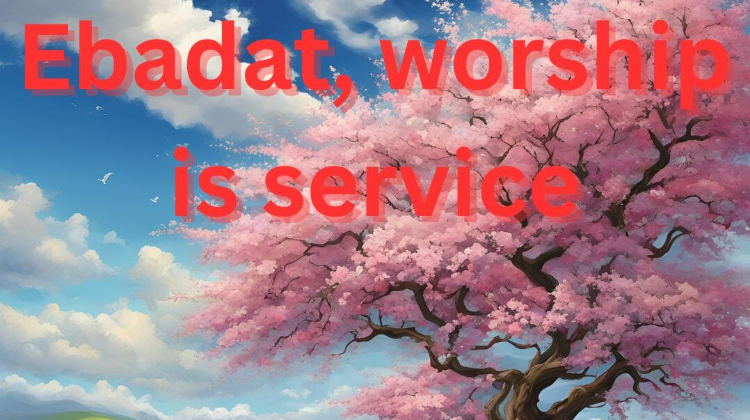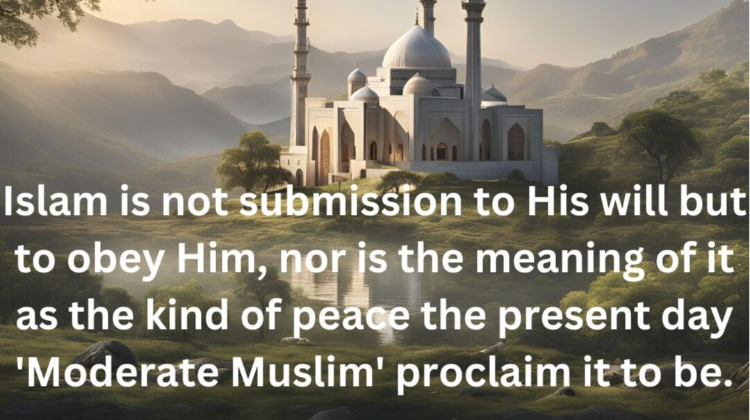The Real Cause of the Miserable State of Muslims: Deviation from Tawheed
Category :
Islamic Thought & Analysis

Author ::
Salzar Rahman Sabu
Jan 27, 2026
visibility
808 Read
The foundation of this Deen-ul-Haq (true religion) is Tawheed, that is, the declaration “La ilaha illallah”—there is no disagreement about this. Without Tawheed, there can be no Islam; Tawheed is the most important aspect of Islam.
The unfortunate reality is that the people who identify themselves as Muslims today hold a fundamentally flawed concept (Aqidah) of Tawheed. For them, Tawheed simply means believing in the oneness of Allah and worshipping Him. Although the Arabic words Tawheed and Wahdaniyyah originate from the same root, their meanings are not the same. Wahdaniyyah refers to believing that the Creator of the universe, Allah, is One (monotheism). On the other hand, Tawheed means accepting the sovereignty of that One Allah and offering unconditional obedience only to Him.
The polytheists (Mushrikeen) of Arabia—among whom the last Messenger of Allah was sent—also believed in the Oneness of Allah (Wahdaniyyah). But they did not accept His authority; they did not obey His laws. Instead, they governed their personal, social, and collective lives with man-made rules and traditions. These rules were created and controlled by the Qurayshi priests of the Kaaba, even though they worshipped idols.
Despite their idol worship, those Mushrikeen believed that Allah alone is the Creator of the universe. In fact, their faith in the Oneness of Allah was not any weaker than that of many people today who claim to be Muslims and believers. (See Surah Zukhruf 9, Ankabut 61, Luqman 25.) But since they did not follow the commands of Allah, their belief was meaningless and ineffective. Naturally, the result of disobeying Allah was that their society was full of injustice, oppression, lawlessness, insecurity, conflict, and bloodshed. This is why that era is known as the Days of Ignorance (Ayyam-e-Jahiliyyah).
A Messenger was sent to call them back to the authority of Allah. The Messenger did precisely that, and as a result, that society—immersed in wrongdoing and unrest—was transformed into a community full of peace, justice, and prosperity. So, the true reason they were disbelievers and polytheists was their refusal to obey Allah.
Today’s Muslims fail to realize that the idols of wood and stone of pre-Islamic Arabia have now reappeared in the form of democracy, communism, dictatorship, monarchy, and other such systems. The Muslim population now obeys the founders and leaders of these man-made systems instead of Allah.
Each of these systems represents a separate Deen (way of life), just like Islam is also a complete Deen. The difference is that these man-made Deens only focus on certain aspects of human life, and even then, they fail to offer comprehensive solutions. Islam, however, offers a complete and perfect system—from personal to collective life.
Today’s Muslim population, by obeying these man-made ideologies, has effectively become polytheists and disbelievers, just like the idol-worshipping Arabs of old. The Messenger of Allah came and established the foundation of Tawheed, not Wahdaniyyah, because the Arab polytheists already believed that Allah was One. They didn’t consider their idols as gods or creators, but as intermediaries to bring them closer to Allah or intercede for them. (See Surah Yunus 18, Surah Zumar 3.)
So, even behind their idol worship, their true object of worship was Allah. But today, in the systems people obey, there is no place for Allah at all. These systems are completely indifferent to the existence of Allah. As a result, today’s so-called believers and Muslims are involved in a form of shirk (polytheism) and kufr (disbelief) far worse than that of the Arabs 1400 years ago.
Yes, I am calling this shirk and kufr, and I am fully aware of the weight of this statement. But I sincerely request readers to reflect on the logic presented here before reacting emotionally. If this population were truly believers and Muslims, then many verses of the Qur’an would have to be deemed false—which is absolutely impossible.
Allah has promised:
"If you are believers, I will grant you authority on earth as I gave to those before you." (Surah An-Nur: 55).
That promise was fulfilled when He gave half the world to the hands of the illiterate, poor, and small Ummah of Muhammad (SAW), only half a million strong.
Now, we claim to be believers—so why don't we hold power on Earth today?
Is Allah failing to keep His promise? (Na’udhubillah!)
No—Allah also says:
“Allah is the Wali (Protector) of the believers.” (Surah Baqarah: 257).
If Allah is truly someone’s protector, can they ever be humiliated and defeated by their enemies? Can their mothers and sisters be raped by oppressors?
Absolutely not.
The only answer is: We are not true believers. We are not Muslims. We are not the Ummah of Muhammad (SAW). Why?
Because this population has deviated from the very foundation of Islam. That foundation is Tawheed, the sovereignty of Allah. That is what “La ilaha illallah” truly means. From Adam (AS) to the last Prophet Muhammad (SAW), this Kalima has remained unchanged. The word “Ilah” has always been used in it—no other term has ever replaced it.
There’s no doubt that Allah is our only object of worship, Creator, and Sustainer. But merely acknowledging that is not the foundation of this Deen. The foundation is the Kalima, which is La ilaha illallah. Without accepting Allah as Ilah, no one can be a believer.
The true meaning of the word Ilah is “the one whose command must be followed.”
But over centuries, this meaning has been corrupted into “the one who is worshipped.” Just like how “Hedayah” (guidance) has been wrongly replaced with “Taqwa,” and “Aqidah” has been confused with “Iman,” similarly, “Ilah” has been translated globally as “Ma’bud” or “object of worship.”
In almost all translations of the Qur’an, especially those produced by Christian institutions, the Kalima is translated as:
“There is no god but Allah,” or
“There is no object of worship but Allah.”
This translation is deeply flawed. If that were true, the Arabic would have been:
“La Ma’bud illallah,”
but that has never been the Kalima.
No Prophet—from Adam (AS) to Muhammad (SAW)—ever brought this as the Kalima. A non-Muslim cannot enter Islam by declaring “There is no Ma’bud except Allah.”
This misunderstanding has led the entire Muslim population to deviate from the foundation of the Deen. As a result, they are no longer believers. Not only have they become disbelievers and polytheists, but this mistake has led to something even worse:
Due to the change in the meaning of Ilah, their entire Aqidah regarding the Kalima has changed. And when one’s Aqidah is incorrect, all actions become null and void according to all scholars, and even Iman itself loses its value.
Today, Muslims place no importance on following Allah’s commands. Worship is considered enough. This wrong belief is deeply embedded in their subconscious. As a result, there is no state, no group in the world today that runs its collective life by Allah’s commands. Instead, disobedience of Allah on a national scale is being whitewashed with mountains of religious rituals and worship—but all this fails to attract Allah’s mercy.
If Ilah meant “Ma’bud” (object of worship), the Qur’an would have said so.
But numerous verses show otherwise. For example:
Surah Al-Fath 17:
“Whoever obeys Allah and His Messenger, Allah will admit him to Paradise.”
The precondition for Paradise is obedience, not worship.
Surah An-Nisa 69:
“Whoever obeys Allah and His Messenger will be with the Prophets, the Truthful, the Martyrs, and the Righteous.”
Again, no mention of worship—only obedience.
So, Ilah means: “The One whose commands are to be obeyed.”
Allah’s demand is that humans must first commit to obeying Him in everything. Then comes the worship, because Allah commands worship. Thus, obedience comes first, followed by worship.
Surah Al-Anbiya 25:
“There is no Ilah but Allah, so worship Him.”
If worship was primary, the verse would have said:
“There is no Ma’bud but Allah, so obey Him.”
But the Qur’an never says that.
In every case, Allah uses “Ilah” and “Ma’bud” as distinct terms, because their meanings are not the same.
In conclusion:
The 1.5 billion people who call themselves Muslims, and even believers and Ummah of Muhammad (SAW), are none of these. They are practically immersed in Shirk and Kufr.
Allah says:
“Whoever does not judge by what Allah has revealed, they are disbelievers, wrongdoers, and rebellious.” (Surah Al-Ma’idah: 44, 45, 47)
The word “Hukm” (judgment) here doesn't just mean legal judgments in courts—it refers to personal and collective life being governed by Allah's laws revealed in the Qur’an and Sunnah.
But Muslims today are divided into over fifty nation-states, subjugated by European Christians, Jews, and pagans. They run their societies with their man-made laws and reject Allah’s guidance. As a result, they have become Faasiq (disobedient), Zaalim (oppressors), and Kaafir (rejecters).
By now, it should be clear that Tawheed and Deen are not the same.
Tawheed is the foundation: rejecting all sovereignty besides Allah and obeying His every command.
Deen is the structure built upon that foundation—living according to Allah and His Messenger’s commands in every matter, without question.
Gratitude to Allah that He has once again revealed this lost understanding of Tawheed and the true Aqidah of the Deen to the Imam of the Age, Muhammad Bayazeed Khan Panni (RH). On February 2, 2008, through a great miracle, Allah revealed that “Hizb-ut-Tawheed” is His chosen group, through which all global injustice and unrest will be removed and universal peace and security will be established—Insha’Allah.
Images Related to this Post
Related Post
Search
Popular Post
Recent Post
Tags
Hezbut_Tawheed
Imam Hossain Mohammad Salim
Bangladesh Violence
Religious Extremism
Mob Attacks
Human Rights Violations
Minority Persecution
Rangpur Attacks
Jamaat-E-Islami
Hefazat-E-Islam
Tawheed
Muslim Ummah
Islamic Unity
Shirk
Kufr
Islamic Revival
Kalima-E-Tawheed
Obedience To Allah
Deen-Ul-Haq
Hizb-Ut-Tawheed
Ram Temple
Third Temple
Ayodhya
Jerusalem
Religious Politics
Babri Masjid
Al-Aqsa
Zionism
Hindutva
Netanyahu
Religious Hate
Muslim Unity
Noakhali Conference
Imam Salim
Islamic Movement
Shahidi Jame Mosque
Ht Members Conference
Bangladesh Religious Persecution
Islamic Reform Movement
Extremist Violence
Human Rights Bangladesh
Sonaimuri Noakhali Attack
Political Extremism Bangladesh
Faith-Based Violence
Eid Al‑Fitr
Zakat Al‑Fitr
Ramadan Charity
Islamic Social Justice
Community Harmony
Bangladesh Poverty
Islamic Economy
Sadaqah
Fitrana
Eid Unity
Arab History
Islamic Governance
Caliph Umar
Social Transformation
Women’s Rights In Islam
Justice In Islam
Political Systems
Islam Vs Democracy
Islam And Knowledge
Islamic System
Prophet Muhammad
Farewell Sermon
Hajj
Global Peace
Human Rights In Islam
Dhul-Hijjah
Arafat Sermon
Islam Vs Un Charter
Unemployment In Bangladesh
Education System Failure
Educated Unemployment
Jobless Graduates
British Education Legacy
Youth Crisis
Hezbut Tawheed Views
Bids Report
Ssc To Masters Job Race
Middle Class Dilemma
Kerani Mentality
Excessiveness In Religion
Religious Distortion
Overinterpretation Of Islam
Misguided Enthusiasm
Warnings Of The Prophet
True Islam
Spiritual Clarity
Abandoning The Mission
Chormonai Pir
Desherpotro
Islamic Reform
Persecution In Bangladesh
Religious Violence
Jamaat-E-Islami Attacks
Islamic Truth Movement
Women And Knowledge
Islamic Feminism
Gender Roles
Social Awareness
Muslim Women
Female Empowerment
Islamic History
Qur’anic Guidelines
Obeying Allah’s Commands
Islam And Suffering
Workers' Rights In Islam
Labor Justice
May Day Islam
Islamic Society Model
Chashirhat Development
Imam Hossain Mohammad Selim
Islamic Brotherhood
Fair Wages
Islamic Military Strategy
Tawheed-Based State
National Security
Qur’anic Warfare
Mujahideen
Peacekeeping
Modern Islamic Army
Military Training
Ummah Defense
Sharia Governance
Southasia
Extremism
Bangladesh
India
Pakistan
Myanmar
Jihad
Islamophobia
Radicalism
Resistance
Conflict
War
Terrorism
Proxywar
Bjp
Hasina
Ghazwa
Kashmir
Rohingya
Arsa
Militancy
Ideology
Unity
Awareness
Injustice
Arms
Geopolitics
Gaza
Hypocrisy
Taliban
Alqaeda
Afghanistan
Syria
Iraq
America
China
Russia
Media
Violence
Oppression
Nationalism
Muslim
Islam
Justice
Youth
Leadership
Sovereignty
Hezbuttawheed
Mosque
Governance
Society
Administration
Education
Military
Economy
Women
Culture
Law
Quran
Hadith
Prayer
Madinah
Baytalmal
Amir
Discipline
Khutba
Transparency
Spirituality
Training
Morality
Ummah
Prophet
Sharia
Community
Peace
Development
Security
National
Khutbah
Sabr
Zakat
Sufism
Equality
Mosquesystem
Participation
Aqiqah
Accountability
Tradition
Modernity
Ummati Muhammad
Unity In Islam
Sunnah
Islamic Teachings
Muslim World
Deen Of Islam
Security Crisis
National Unity
Political Unrest
Military Vulnerabilities
Strength
Solidarity
Disunity
Muslim Nations
Women's Rights
Rufaidah Panni
Eid Congregation
Islamic Women Empowerment
Social Justice
Equality In Islam
Momen
Kafir
Mushrik
Allah's Laws
Faith In Islam
Belief In Allah
True Believers
Kalimah
Shariah
Justice And Peace
Political Parties
Multiparty Democracy
Political Factionalism
Islamic Political System
Democracy Vs Islam
Secularism
Political Ideologies
Islamic Law
Political Vision
Governance Without Parties
Political Stability
Islamic State
Shura System
Islamic Perspective
Women’s Reform Commission
Family Law
Inheritance Law
Labor Recognition
Shariah Law
Gender Equality
Religious Opposition
Feminist Movement
Human Rights
Political Debat
Arab Society
Islamic Economic Justice
Military Transformation
Education In Islam
Judicial Independence
Accountability In Islam
Islam And Democracy
Societal Transformation
Governance Systems
Surah Yaseen
Islamic Guidance
Religious Work
Misguidance
Imam Role
Religious Commercialization
Truth And Falsehood
Religion And Society
Quranic Teachings
Ethical Leadership
Spiritual Struggle
Religious Scholars
Religious Corruption
Quranic Verses
Islamic Scholars
Prophet Muhammad (S.a.w)
Military Nation Of Islam
Sahabah
Lost Legacy
Ummah Of Muhammad
Jehad
Qetal
Islam And Violence
Islamic Leadership
State Vs Individual Struggle
Allah's Help
Islamic Reflection
Divine Support
Muslim World Crisis
Quran Teachings
Islamic Awakening
Qurbani
Bangladesh Politics
Eid Ul Adha
Islamic Sacrifice
Bangladesh Crisis
Global Conspiracy
Sacrifice
Labour Rights
Employment Crisis
Bangladesh Economy
Wage Gap
Inflation
Unemployment
Education Reform
Job Creation
Income Inequality
Post-Pandemic Economy
Eid-Ul-Azha 2025
Bangladesh Eid Congregation
Eid Prayer 2025
Women's Participation
Peace & Justice
Bangladesh Religious Events
Eid-Ul-Azha Message
Khilafah
Global Oppression
Islamic Festivals
Quranic Guidance
Spiritual Sacrifice
Ibrahim's Sacrifice
Eid Mubarak
Peace Through Tawheed
Women's Reform Debate
Bangladesh Women's Rights
Hezbut Tawheed Position
Islamic View On Women's Rights
Legal Reforms Bangladesh
Family Law Reform
Inheritance Rights
Sharia Law Bangladesh
Women's Equality
Western Influence
Religious Groups Debate
Gender Equality Islam
Islamic Social Solutions
Women's Dignity In Islam
Islamic Solutions
Beyond Politics
Labor Rights
Class Struggle
Economic Solutions
May Day Analysis
Economic Justice
Divine Accountability
Global Economic Crisis
Capitalism Vs Islam
Socialism Vs Islam
Savar Attack
Ishwardi Attack
Religious Fanaticism
Political Manipulation
Islamic Extremism
Government Response
Democratic Threats
Islamic Teachings Misuse
Radical Ideology
Communal Conflict
Radical Groups In Bangladesh
Terrorism In Bangladesh
Islamic Rights
Mosque Access
Eid Prayer
Muslim Women Empowerment
Prophet Muhammad Teachings
Women In Mosques
Women Rights In Islam
Gender Equality In Islam
Masjid An-Nabawi
Women's Role In Islam
Misconceptions About Women
Women Participation In Mosque
Eid Khutbah 2025
Islamic Sermon
Hossain Mohammad Selim
Bangladesh Eid
Qurbani Meaning
Women In Islam
Rufaydah Panni
Islamic Congregation
Female Participation In Eid
Chashirhat Eid
Palestine Solidarity
Eid Prayer Bangladesh
Women In Eid
Kushtia Rally
Gaza Crisis
Muslim Persecution
Bangladesh News
Peace Movement
Humanity
Divine Law
Social Reform
Religious Harmony
Truth
Call To Action
Palestine
Dajjal
Islamic Struggle
Mohammad Bayazid Khan Panni
Genocide
Oic
Protest
National Press Club
Rangpur Attack
Religious Reform
Karwan Bazar Protest
Terrorist Attack
Law And Order Failure
Emamht
Ht_In_Brief
Pabnaattack
Justiceforvictims
Humanchain
Politicalviolence
Legalreform
Endimpunity
Bangladeshjustice
Hezbuttawheedleaders
Demandjustice
Pabnapressconference
Policeinaction
Proposedgovernancesystem
Islamicstatesystem
Allahslaw
Economicreform
Educationreform
Capitalismcritique
Dhakaevent
Purposeofcreation
Humancreation
Khalifah
Allahsplan
Divineguidance
Adamsstory
Islamicteachings
Peaceandjustice
Sovereigntyofallah
Lailahaillallah
Islamiccreed
Aqidah
Islamicfaith
Iman
Deen
Peaceinislam
Purposeofislam
Beliefsystem
Faithandworship
Why
Escalate
Mohammad Bayazeed Khan Panni
Hossain Mohammad Salim
Religious
Extremist
Interfaith
Situation
Ultimatum
Threats
Extremist Attack
Attack
Movement
Barakat Hossain Osama
United Kingdom
Conservative Party
Donald Trump
Secular Leadership
Fanatical Populace
Fanatical
Populace
Religion
Extensive Damage
Catastrophic Flooding
High School
Urgent Help Needed
Devastated
Allah
Modus Operandi
Messenger
Believer
Messenger Of Allah
People
Human
Jame Mosque
A Cornerstone
Cornerstone
A Just Society
The Establishment
Establishment
History
Messenger Muhammad
Simple And Straightforward
Who Made
The Simple
Complex
Way Of Life
Jannah
Way To Jannah
Civilization
Religious Figures
Survive
Politics
Worship
Establish
Goals And Objectives
System Of Life
Money
Tolerance
Madness
Mo'men
Today’s
Educated
Needs
Corruption
British
Government
Democracy
Communism
Socialism
Political
Secular Education
Responsible
The Reign
Hindu
Terrifying
Slavery
Jewish Conspiracy
The Protocols Of The Elders Of Zion
Politician
Give And Take
Education System
European
Population
Mentality
Slave
Preface
Children
The Quran
The Miracle
Creator
The Creator
Creation Of Man
The Creation Of Man
Premise
First Words
Aqida
The Programme
The Messenger
Mankind
Actual
Concept Of Islam
Crossroads
Mojeza
The Call
Panni
The Author
Qur'an
Process
The Process
A Person
Tabook
The Special Three
Special
The Tabook
The Ahzab
Ahzab
Khandak
The Uhud
Uhud
The Badr
Badr
Ebadat
Ma'bud
Vicegerent
Worshipper
Aqaed
The Reasons
Reasons
Reason
Adam
Eblis
Khalifa
Angels
Adam And Eve
Adam And Hawa









Leave a Comment